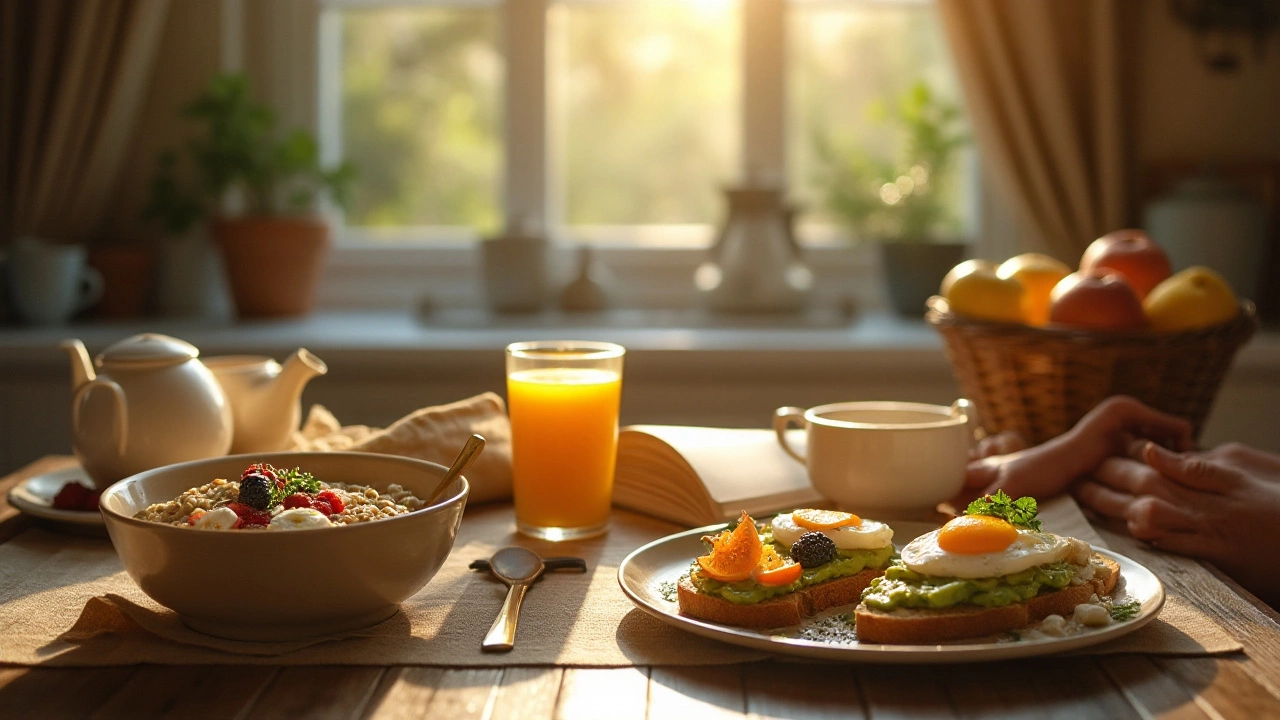Nutritious Meals Made Simple: Quick Dinners, Meal Prep & Easy Veggies
Trying to eat healthier doesn’t have to mean spending hours in the kitchen. You can whip up tasty, balanced meals with a few smart shortcuts and a handful of ingredients you probably already have. Below you’ll find practical dinner ideas, a no‑stress meal‑prep system, and a short list of vegetables that are almost fool‑proof for beginners.
Quick Dinner Ideas for Every Night
When you’re exhausted after work, the last thing you want is a complicated recipe. Start with a protein that cooks fast—think chicken breast, canned tuna, or scrambled eggs. Pair it with a carb that’s ready in minutes, like microwavable brown rice or whole‑grain pasta. Add a splash of sauce (tomato, pesto, or soy‑ginger) and a quick side of frozen mixed veg, and you’ve got dinner on the table in under 20 minutes.
One of our favorite go‑to dishes is a “one‑pan healthy stir‑fry.” Heat a tablespoon of olive oil, toss in sliced bell peppers, snap peas, and carrots, then add bite‑size chicken pieces. Cook until the chicken is done, splash in some low‑sodium soy sauce, and serve over pre‑cooked quinoa (which you can make in bulk on Sunday). It’s colorful, protein‑packed, and less than 350 calories per serving.
If you’re looking for something vegetarian, try a “quick chickpea curry.” Drain and rinse a can of chickpeas, sauté with onion, garlic, and a spoonful of curry paste, then stir in canned diced tomatoes and a splash of coconut milk. Let it simmer for ten minutes, and serve with instant brown rice. You get fiber, plant protein, and a comforting flavor without the fuss.
Meal‑Prep Basics and Simple Veggie Picks
Meal prep isn’t about freezing nine‑hour casseroles; it’s about setting up a few core components you can mix and match. Spend an hour on the weekend cooking a big batch of whole‑grain rice, roasting a tray of sweet potatoes, and grilling a slab of salmon or tofu. Store each item in separate containers, and you’ll have the building blocks for lunches and dinners all week.
To keep things fresh, choose vegetables that are virtually indestructible. Zucchini, baby carrots, and spinach can last a full week in the fridge. Roast a mix of broccoli, cauliflower, and Brussels sprouts with a drizzle of olive oil and a pinch of salt—once they’re browned, they become sweeter and more satisfying. Throw a handful into a salad, stir them into a pasta, or just eat them straight from the container.
When you’re ready to assemble a meal, grab a portion of protein, a scoop of carbs, and a generous side of veg. Add a simple dressing—lemon juice, a dash of mustard, and a splash of olive oil—and you’ve got a balanced plate with protein, fiber, healthy fats, and vitamins.
Remember, the goal isn’t perfection; it’s consistency. Start with one or two of these ideas, notice what works for your schedule, and tweak as you go. Soon you’ll find that nutritious meals become a natural part of your routine, not a chore.
Breakfast is the most important meal of the day, providing the energy your body and mind need after a night of fasting. The healthiest breakfasts are those that combine proteins, healthy fats, and carbohydrates. Including whole grains, fruits, and vegetables in your morning meal can boost digestion, improve concentration, and reduce calorie intake throughout the day. Explore a variety of nutritious breakfast options that can be personalized to fit any taste preference.






